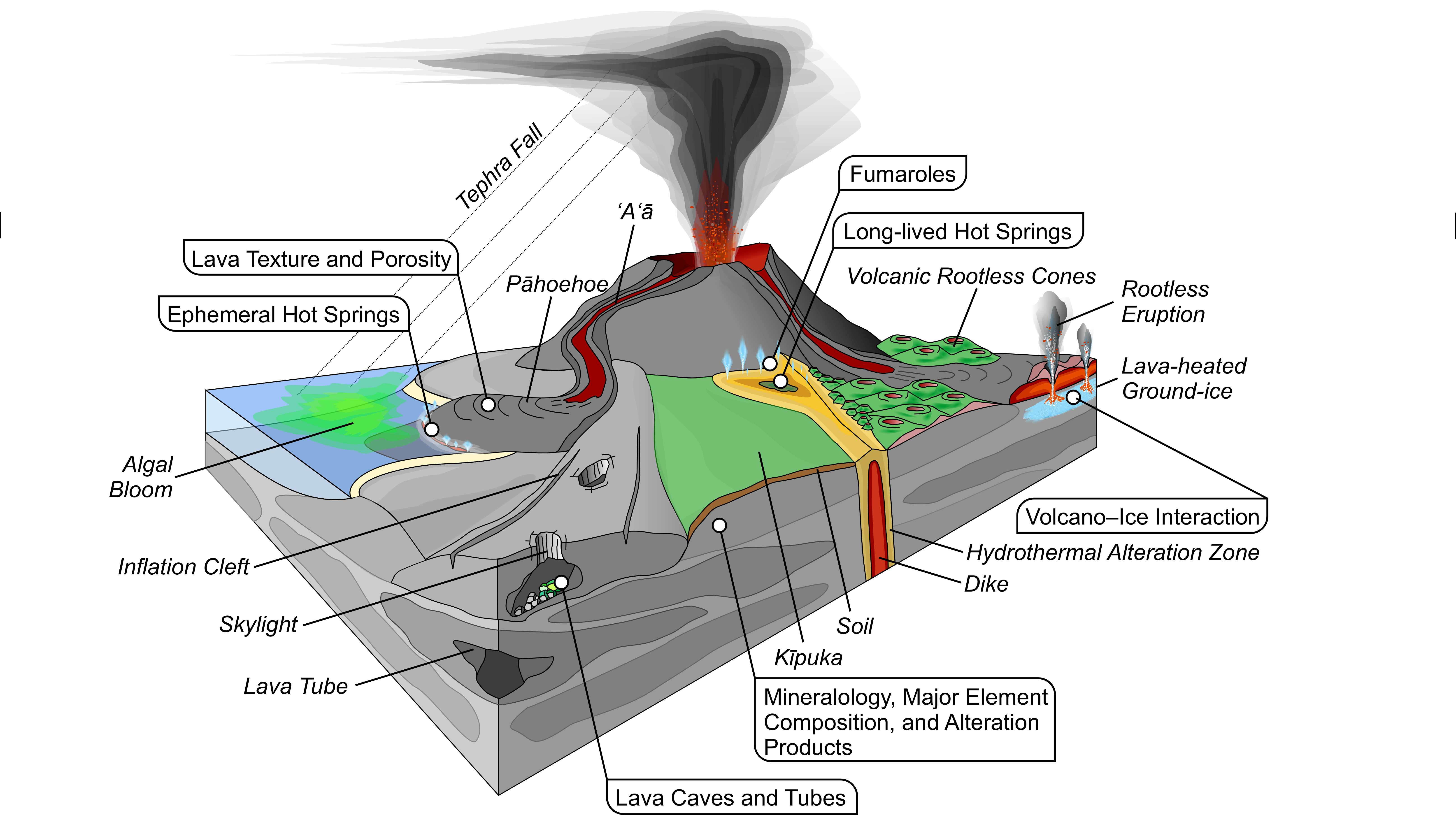Nathan Hadland, Christopher W. Hamilton & Solange Duhamel
A recent review article by graduate student Nathan Hadland in the Duhamel Lab evaluates how young volcanic terrains can be colonized by microorganisms. Volcanic eruptions create sterile environments with a variety of habitats available for colonization including hot springs, fumaroles, lava tubes, and rock surfaces. Most of the Earth’s surface (including the seafloor) is of volcanic origin, which makes constraining the development of microbial communities in these systems fundamentally important for informing ecological processes The study of these communities is also important for understanding how life arose on Earth and may exist elsewhere, including Mars which was volcanically active in the past. Despite the variety environmental conditions in volcanic systems, microbes that colonize these areas face challenges including extreme temperatures, ultraviolet radiation, and low nutrients. Consequently, a wide variety of adaptations and metabolisms are found in these systems in order to survive. See the full review in Nature Communications earth & environment here.






